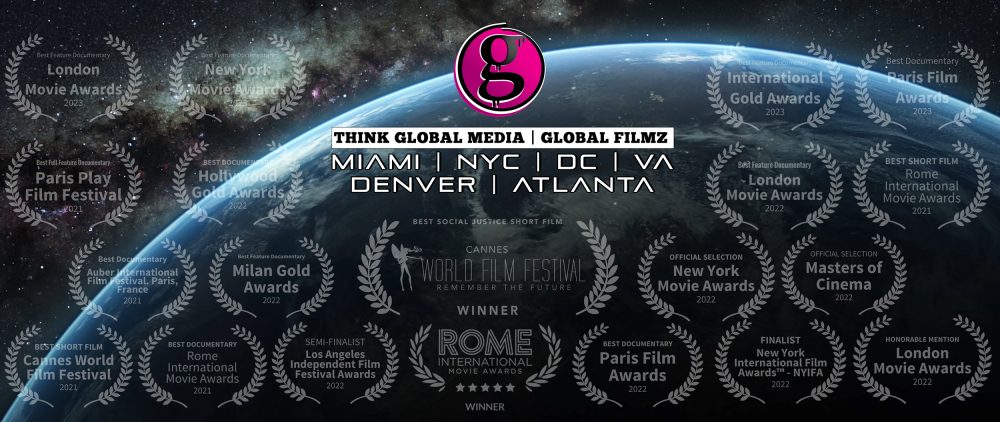
How to Produce a Motion Picture Film
How to Produce a Motion Picture Film
The world of motion picture filmmaking is a realm of storytelling, creativity, and artistic expression. Producing a motion picture film is a complex and multifaceted endeavor that requires careful planning, a dedicated team, and a deep understanding of the filmmaking process. In this comprehensive guide, we will walk you through the steps involved in producing a motion picture film, from concept development to post-production and beyond.
1. Concept Development
The journey of producing a motion picture film begins with a compelling concept. This concept is the foundation upon which your entire film is built. Here’s how to develop it:
- Choose a Story: Select a story, script, or idea that you are passionate about and want to bring to life on the big screen. It could be an original script, an adaptation of a book, or a true story.
- Target Audience: Define your target audience and consider their demographics, interests, and preferences.
- Genre and Style: Determine the genre and style of your film, whether it’s a drama, comedy, thriller, documentary, or any other category.
- Unique Angle: Identify the unique angle or perspective from which you want to tell your story. What sets your film apart from others in the same genre?
2. Screenwriting and Script Development
Once you have a concept, the next step is to transform it into a screenplay. This involves:
- Writing or Acquiring a Script: Either write the script yourself or collaborate with a screenwriter. If adapting from a book or real-life story, ensure you have the rights.
- Storyboarding: Create visual representations of key scenes to help plan the film’s visual style and sequences.
- Script Revisions: Continuously refine and revise the script to ensure it’s engaging and cinematic.
3. Budgeting and Securing Funding
Producing a motion picture film can be expensive, so securing funding is a critical step. Develop a comprehensive budget that covers all expenses, including:
- Equipment and technology
- Crew salaries
- Cast salaries
- Location fees
- Set construction and art department costs
- Post-production expenses
Explore various funding options, such as production companies, investors, grants, crowdfunding, and film financing organizations.
 4. Pre-Production Planning
4. Pre-Production Planning
In the pre-production phase, you’ll make detailed plans for your film. Key components include:
- Casting: Audition actors and select the cast members who best fit the roles.
- Location Scouting: Find and secure the locations where you will shoot your film.
- Crew Recruitment: Assemble a team of professionals, including a director, cinematographer, production designer, and costume designer.
- Legal and Permits: Obtain the necessary permits, releases, and clearances for your film.
5. Filming
The production phase is where you’ll capture the content for your film. This may involve:
- Shooting Scenes: Follow the shooting schedule, making sure to capture each scene with attention to detail and cinematic quality.
- Directing the Cast: The director works closely with the actors to ensure their performances are aligned with the vision of the film.
- Art Direction: The production designer and art department manage the visual aspects of the film, including sets, props, and costumes.
- Camera and Lighting: The cinematographer is responsible for the visual style and camera work, while the lighting department ensures proper lighting for each shot.
 6. Post-Production
6. Post-Production
Post-production is where your film comes together and is transformed into a cohesive work of art:
- Editing: The editor assembles the footage, arranges scenes, and ensures a coherent and engaging narrative.
- Sound Design: Enhance audio quality, add music, sound effects, and foley work to bring the film to life.
- Visual Effects: If your film includes special effects or CGI, post-production is where they are integrated.
- Color Correction: Adjust the colors and visual tones to create a consistent and atmospheric style.
7. Marketing and Promotion
Develop a marketing and promotion strategy to generate interest and awareness for your film:
- Trailers and Teasers: Create compelling trailers and teasers that offer a glimpse into the film’s content.
- Film Festivals: Submit your film to film festivals for exposure and potential awards.
- Social Media: Utilize social media platforms to engage with your audience and build anticipation.
- Press and Media Coverage: Secure media coverage to boost awareness and excitement.
8. Distribution and Release
Decide on the distribution strategy for your film:
- Theatrical Release: Screen your film in theaters to reach a wide audience.
- Streaming Platforms: Explore distribution deals with platforms like Netflix, Amazon Prime, or Hulu.
- Home Video and DVD: Consider releasing physical copies for purchase or rental.
- Online Distribution: Utilize your website, Vimeo, YouTube, or other online platforms for self-distribution.
9. Viewer Engagement and Feedback
Engage with your audience by encouraging feedback and interaction:
- Respond to comments and messages from viewers.
- Host Q&A sessions, attend screenings, and engage in conversations related to your film’s subject.
- Use viewer feedback to inform future projects and build a community around your work.
10. Ongoing Management and Future Projects
If your film proves successful, consider future projects and the ongoing management of your filmmaking career:
- Explore opportunities for sequels, spin-offs, or related projects.
- Attend film festivals, network with industry professionals, and continue to hone your craft.
Producing a motion picture film is a monumental endeavor that requires creativity, dedication, and a collaborative spirit. By following these steps and understanding the intricacies of the filmmaking process, you can bring your cinematic vision to life and share it with audiences worldwide. Motion pictures have the power to entertain, inspire, and provoke thought, and your unique perspective can make a significant impact in the world of cinema. Good luck, and happy filmmaking!
NARRATIVE FILM REEL
GLOBAL FILMZ EVOLUTION (2017 – 2022) REEL
MUSIC VIDEO PRODUCTION
MUSICAL ARTISTS LOOKING TO PRODUCE A MUSIC VIDEO? WE ARE A MIAMI BASED FULL SERVICE VIDEO PRODUCTION COMPANY, EQUIPPED WITH STATE OF THE ART SMART STUDIO / FILM SETS WHICH ARE PERFECT FOR CREATING A CONTROLLED ENVIRONMENT WHEN NECESSARY OR OUR FILM CREW CAN TAKE THE PRODUCTION TO THE STREETS/BEACHES OF MIAMI.
More Music Videos…(Click here)
Corporate Video Production
IN NEED OF PROMOTIONAL VIDEOS FOR YOUR BUSINESS? WE CAN HELP YOU SHAPE YOUR DIGITAL MARKETING STRATEGY BY INTEGRATING HIGH QUALITY, PROFESSIONAL CORPORATE VIDEOS.
More Corporate Videos…(Click here)
TV SHOW PRODUCTIONS
SITCOMS
DOCU-SERIES
HIDDEN CAMERA SHOWS
Behind the Scenes
More Behind the Scenes…(Click here)




 4. Pre-Production Planning
4. Pre-Production Planning 6. Post-Production
6. Post-Production

